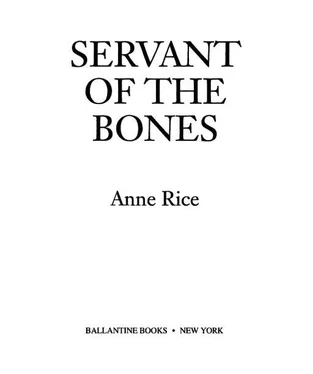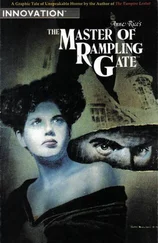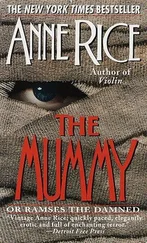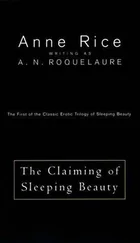“Yes, Rebbe,” said Gregory again, patiently in English. “I’m as rich as you can imagine, and I know you don’t choose to imagine it, nor to dwell on it, nor profit from it—”
“Well, then, come to the point,” said the old man in Yiddish. “You waste my time. You waste the precious moments I have left to me, which I would rather spend in charity than in condemnation. What do you want?”
“You spoke of a family secret,” Gregory said. “Rebbe, speak to me in English, please.” The old man sneered.
“And what did I speak then, when you were a little boy?” the old man asked in Yiddish. “Did I speak Yiddish or Polish, or was it English then too?”
“I don’t remember,” said the young man. “But I wish you’d speak English now.” He shrugged again, and then he said very quickly, “Rebbe, I am grieving for Esther! It wasn’t my wealth that bought her the diamonds. I wasn’t the cause of her wearing them carelessly. I wasn’t to blame that the thieves caught her unawares.”
Diamonds? There was a lie in this. Esther had worn no diamonds. The Evals had taken from her no diamonds. But Gregory was as smooth-tongued at this as anything else.
How he played the part. How the old man studied him.
The old man moved back just a little, as if the strength of the words had pushed him, perhaps even annoyed him. He scrutinized the young man.
“You mistake my meaning, Gregory,” he said in English. “I don’t speak of your wealth or what she wore around her neck when they killed her. I mean you killed your daughter, Esther. You had her murdered.”
Silence.
In the dimness I saw my hands visible against the books; I saw the tiny creases in the skin of my knuckles, and in the place where a man would have a heart I felt pain.
The smooth-tongued one gave no sign of guilt or shame or even shock. Either infinite innocence or infinite evil suffused him and upheld him in quiet.
“Grandfather, that’s madness. Why would I do such a thing? I am a man of God as you are, Grandfather!”
“Stop!” said the Rebbe. He lifted his hand.
“My followers would never hurt Esther, they—”
“Stop!” said the Rebbe again. “Get on with it, what do you really want.”
Rattled and smiling uneasily, Gregory shook his head. He collected himself to begin again. His lip trembled, but I don’t think the old man could see it as I could.
Gregory still held the check, an offering, poised, in his left hand.
“It’s something I remember you saying once,” said Gregory, the English rapid and natural now. “Nathan and I were in the room. I don’t think Nathan heard it. He was with…someone else. I don’t even remember who else was there, except my mother’s sister Rivka, and it seemed there were old women. But it was here in Brooklyn, and we’d only just come. I could ask Nathan—”
“Leave your brother alone!” said the old man, and this time it was English, confident, low, as natural to his tongue as Yiddish. Anger can do that, strip a voice down to the best way that it knows to speak. “Don’t approach your brother Nathan. Leave your brother Nathan in peace! You just said yourself your brother didn’t hear it.”
“Yes, I knew you would want it that way, Rebbe. I knew you wouldn’t want me to contaminate Nathan.”
“Get on with this.”
“That’s why I came to ask you. Explain it and I won’t bother my beloved brother, but I must know.” He went on. “That day, when I was a child, you spoke about a secret thing. A thing you called the Servant of the Bones.”
I was stricken. The words caught me utterly off guard. The shock only strengthened my form. I could not have been more stunned if he had turned and seen me. I called clothes to cover me, I called the clothes to cover me as he, the zaddik, was covered. And I felt myself immediately sheathed in black silk similar to his, warm and well fitted, and the air felt warm and the tiny lightbulb rocked on its frayed cord.
The Rebbe looked at the bulb for a long moment, then back at his grandson.
“Ah, be still, Azriel,” I commanded myself. “And listen. The answers are coming now.”
“Do you remember?” asked the younger one. “A family secret? A treasure called the Servant of the Bones?”
The old man remembered, but didn’t speak.
“You said,” Gregory continued, “that once a man had brought this thing to your father in Prague. The man was a Moslem, from the mountains. You said that this man had given this thing to your father in payment of a debt.”
Ah, this zaddik possessed the bones! But he wasn’t the master, no, never would he be, either.
He looked hard and secretively at his grandson.
“You were talking to old Rivka,” Gregory pressed, “and you told her the things the Moslem had said. You said that your father should not have accepted such a thing, but your father had been confused because the words on the wooden casket had been in Hebrew. You called it an abomination; you said it should be destroyed.”
I smiled. Did I feel relief or anger? An abomination. I am an abomination. And this abomination can destroy both of you and your room of books; it can tear your house to pieces to the rafters! But who called me!
I put my hand over my mouth in restraint. In the presence of a zaddik, I could not afford the most incidental sigh or sound. I couldn’t afford to weep.
The zaddik was still holding his peace, letting the young man reveal himself more and more.
“Rivka asked you why you didn’t destroy it,” said Gregory patiently, slowly, “and you said that that was not an easy thing to do. You said it was like the old scrolls, this thing. It could not be destroyed irreverently. You spoke again of something written, a document. Do you remember this, Grandfather? Or do I dream?”
The old man’s eyes were cold. “You heard this at my knee?” he muttered. “Why do you ask me of this now?”
Suddenly the old man raised his hand and made a fist and brought the fist down on the desk. Nothing moved, save the dust.
Gregory didn’t blink.
“Why do you come here on the day of your daughter’s funeral,” the old man raged, “and ask me about this old tale! This tale, this secret or treasure, as you call it, that you heard when you were my eloi , my shining one, my chosen pupil, my pride! Why do you come speaking of this thing now!”
The old man was trembling dangerously.
Gregory calculated silently, then took a deep breath.
“Rebbe, the check will buy so many things,” said Gregory.
“Answer my question! Money we have. We are rich here. We were rich when we left Poland. We were rich when we left Israel. Answer my question. Why do you ask about this thing now?”
I could see no wealth in this room but I believed him.
I knew his kind. He lived only to study Torah and to keep the law, and to pray, and to advise those who came to him daily, those who believed he could see into souls and make miracles, those for whom he was the instrument of God. Wealth would make no change in the life of such a man whatsoever, except that he might study day and night as he chose.
I felt my pulse, very strong. I felt the air in me. My strength had been steadily increasing since the words had been spoken. The bones had to be here. Yes, he had them, and somehow he had called me up. He had laid hands on them, or read the words, or spoken the prayer…it had to be this old man, but how was such a thing accomplished and why had I not simply destroyed him out of hand?
Out of memory, like a comet came a face I knew and loved. Hundreds of years were bridged in a moment.
This was the face of Samuel, of whom I’ve told you. Samuel of Strasbourg. This was the Master who had sold me for his children as I had once sold myself perhaps for the children of God. In my memory I saw the casket.
Читать дальше








